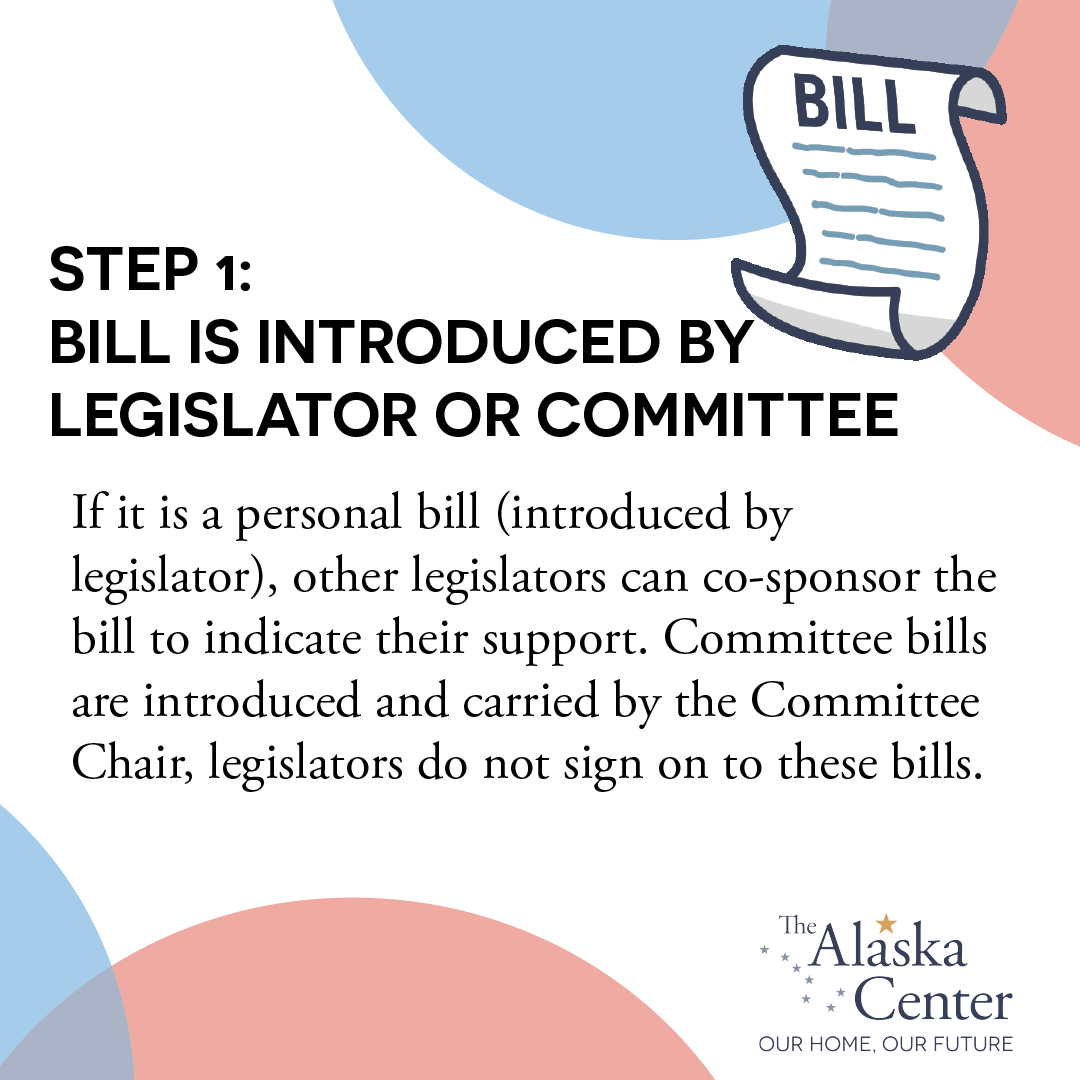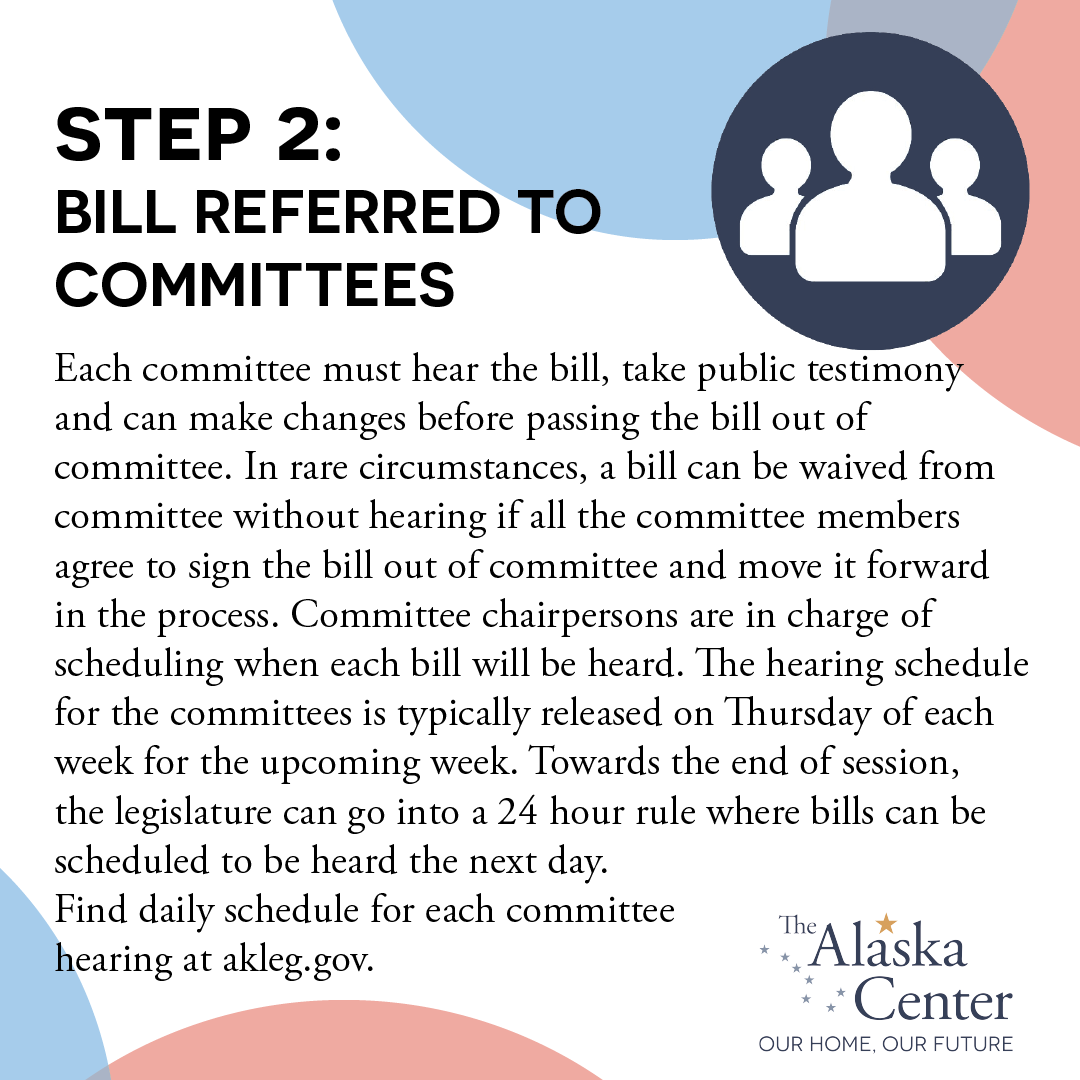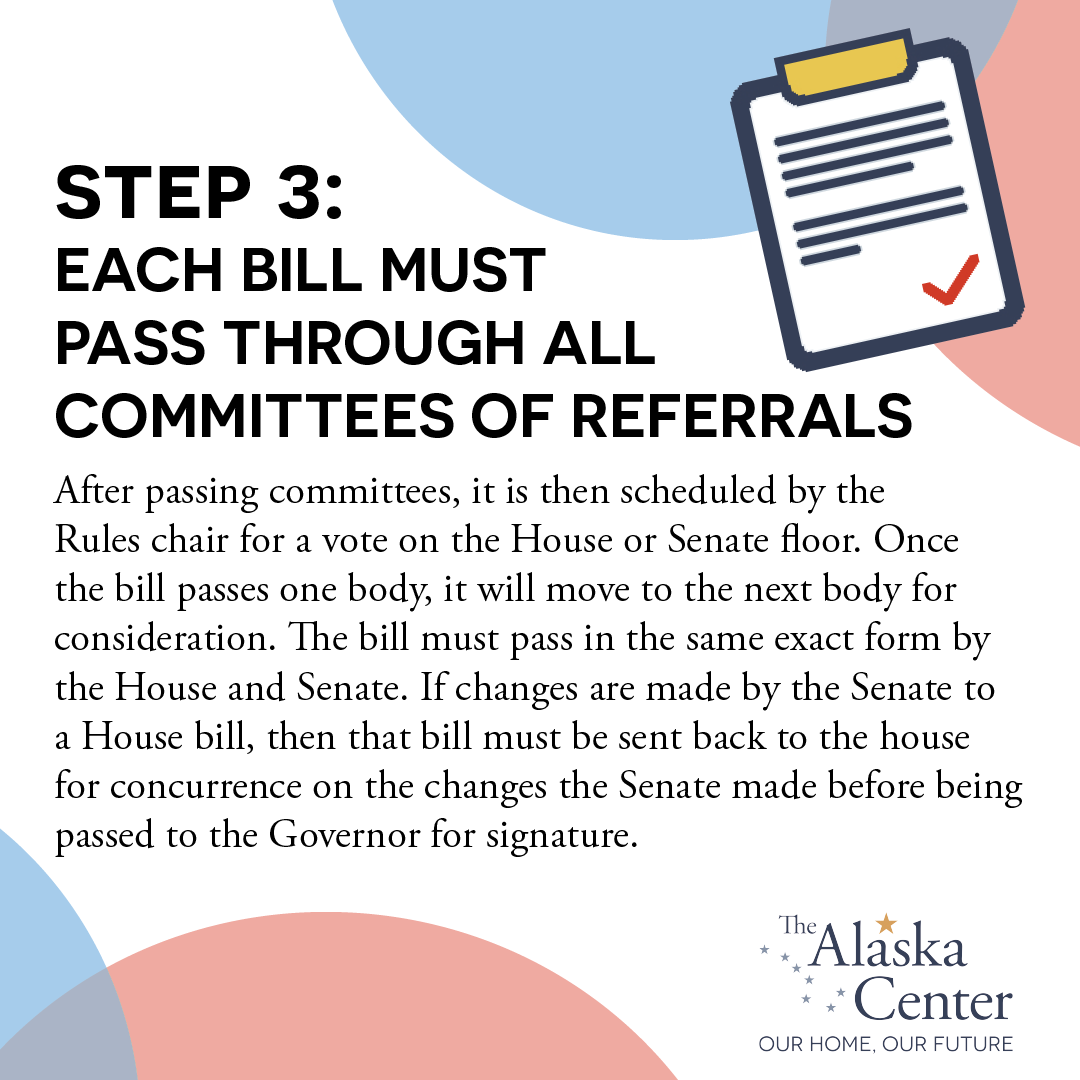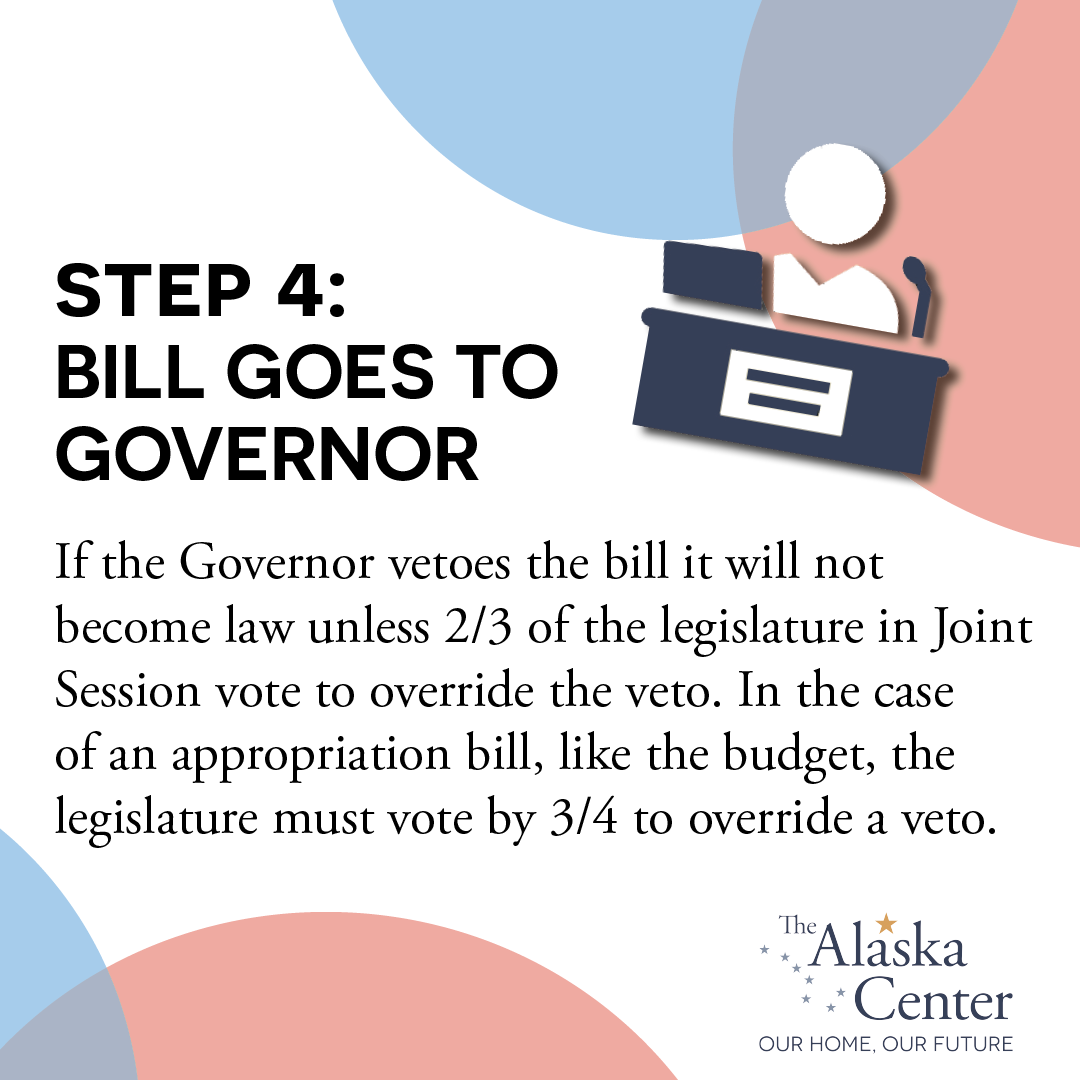Staying on Top of the Alaska Legislative Session
The Legislative Branch is responsible for enacting the State of Alaska laws and appropriating the money necessary to operate the government. Alaska has a bicameral legislature composed of the House of Representatives and the Senate. The House of Representatives is composed of 40 members elected from 40 election districts for two-year terms. The Senate has 20 members elected from 20 senate districts for four-year terms, with one-half of the members standing for election every two years.
Stay Up to date:
Bills we Are watching
HB= House Bill / SB= Senate Bill
Some bills have corresponding bills in House and Senate.
Bills are categorized below by the following themes:
Democracy | Climate & Clean Energy | Equity & Racial Justice | Salmon & Clean Water
Democracy Bills
This bill looks to turn back the ballot measure that a majority of Alaskans voted for. Alaska’s new ranked-choice voting system and the open primary system would be eliminated, returning the state to the systems used before 2022.
- Rep. Rauscher, Sen Shower
The Alaska Division of Elections would be required to take steps to increase security during elections, allow voters to fix their absentee ballot signature if there’s a problem, create a ballot-tracking system viewable by the public, and create a telephone hotline for Alaskans to report problems.
- Sen Shower
Alaska’s new ranked choice voting system and the open primary system would be eliminated, returning the state to the systems used before 2022. Restrictions on “dark money” would remain.
- Rep. Vance
Members of a legislative caucus would be barred from requiring other members to vote together on most issues as a condition of membership in the caucus.
- Sen Shower
The Division of Elections would regularly ask registered Alaska voters living outside the state whether they still want to be registered to vote here, and the division would be required to take additional steps to keep the voter list updated.
- Sen Shower
The Division of Elections would be required to use voting machines approved by the United States Election Assistance Commission that use open-source software.
- Sen Shower
The state’s human rights commission would be required to cover nonprofits as well as for-profit companies.
- Rep. Josephson
The Alaska Division of Elections would be required to provide stamped return envelopes for absentee ballots, automatically check voters’ signatures, allow voters to fix their absentee ballot signature if there’s a problem, and create a ballot-tracking system viewable by the public, and there would be tougher penalties for election-related crimes.
- Sen. Kawasaki
The state school board would create a civics education curriculum, and secondary students would not be able to graduate without passing a course using that curriculum.
- Sen. Stevens
Members of the Board of Governors of the Alaska Bar Association would be nominated by the governor and confirmed by the Legislature instead of being elected from among the state’s attorneys.
- Rep. Rauscher
This omnibus bill makes numerous upgrades to the process of voting in Alaska including a requirement that the Division of Elections publish candidate rankings under the Ranked Choice Voting statute, establishment of a ballot tracking system, requirement for a postage paid envelope for by mail ballots, and a ballot curing system among many other changes.
- Rep. Schrage
Climate & Clean Energy Bills
The Renewable Energy Fund provides grants for utility-scale renewable energy projects and must be reauthorized every ten years. SB 33 and HB 62 provide a ten-year extension for the fund.
- Sen Kaufman / Rep. Edgmon
The Legislature would create a working group intended to increase oil and gas production in Alaska, and someone dissatisfied with a state administrative decision on an oil and gas issue can appeal to the Alaska Superior Court.
- Rep. McKay
Railbelt electric companies would be required to produce at least 25% of their power from renewable sources by 2027 and 80% by 2040.
- Senators Tobin, Gray-Jackson, Kawasaki / Reps. Sumner, Mears, Mina, Armstrong
An Act relating to subsidiary corporations of the Alaska Housing Finance Corporation; and establishing the Alaska energy independence fund.
- Senate and House Rules by request of the Governor
Equity & Racial Justice Bills
The clause of the Alaska Constitution that bans same-sex marriage would be repealed. (This clause has been put on hold since 2014 by federal judges.)
- Rep. Josephson
The privacy clause of the Alaska Constitution would be reinterpreted to allow the banning of abortion here.
- Sen. Hughes
Juneteenth (short for “June Nineteenth”) marks the day when federal troops arrived in Galveston, Texas, in 1865 to take control of the state and ensure that all enslaved people be freed. Juneteenth honors the end of slavery in the United States and is considered the longest-running African American holiday. SB 5 would make Juneteenth a state holiday.
- Senator Gray-Jackson
The state would create a database to collect and share information about times when a police officer uses force against someone.
- Senator Gray-Jackson
October would be officially Filipino-American History Month.
- Senator Gray-Jackson
The Alaska Native Language Preservation and Advisory Council would be renamed and expanded.
- Rep. Story
Transgender girls would be forbidden from participating on girls’ school sports teams.
- Rep. McKay
An Act relating to and prohibiting discrimination based on sexual orientation or gender identity or expression.
- Rep Armstrong, Gray, Carrick, Himschoot, Mina, Story, Groh, Josephson, Galvin, Fields, Mears, Foster, McCormick, Hannan, Edgmon
Would require transgender students would be required to use bathrooms corresponding with their sex at birth and require parents to give permissions for students to change their pronouns.
- Senate Rules by request of the Governor
Salmon & Clean Water Bills
Increases civil penalties and fines for oil spills.
- Rep. Josephson
Per- and polyfluoroalkyl substances (PFAS) are a class of chemicals harmful to human health. They are linked to serious health conditions, including low birth weight, thyroid disease, and cancer. Firefighting foams containing PFAS have seeped into drinking water in dozens of places across Alaska. Senate Bill 67 protects Alaskans' health and prevents future pollution by banning PFAS foams everywhere there are safe alternatives.
- Sen. Kiehl
Designating a river, lake or body of water as “outstanding national resource water,” which would give it greater environmental protections, would require an act of the Legislature and couldn’t be done through regulation.
- Sen. Giessel / Rep. Rausher
HB 104 would expedite and curtail public process for timber sales in areas at risk of wildfire or disease.
- Rep. Cronk, Rauscher, McCabe, McKay, Sumner
How it Works:




